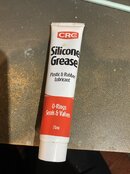Scuba-guy
Contributor
Has anyone tried this yet?
I have a 7000 lumen skywoods with external magnetic charging and was wondering if this can be done and if it was a good idea.
I have a 7000 lumen skywoods with external magnetic charging and was wondering if this can be done and if it was a good idea.




